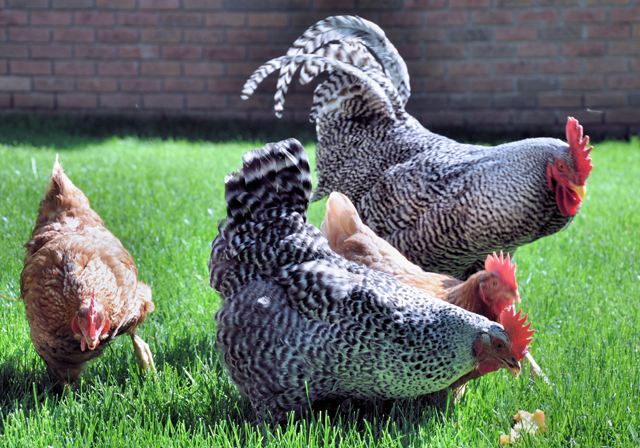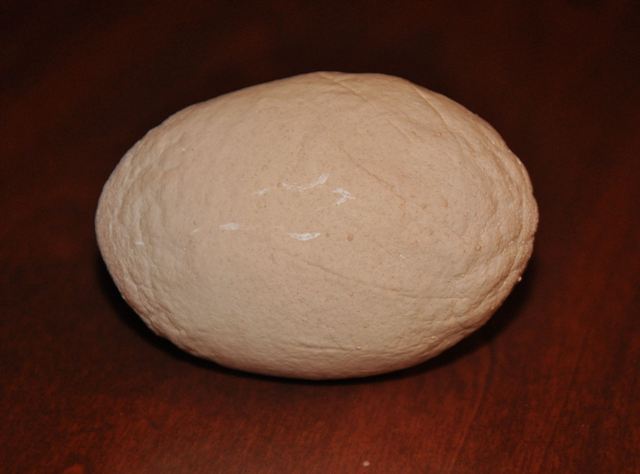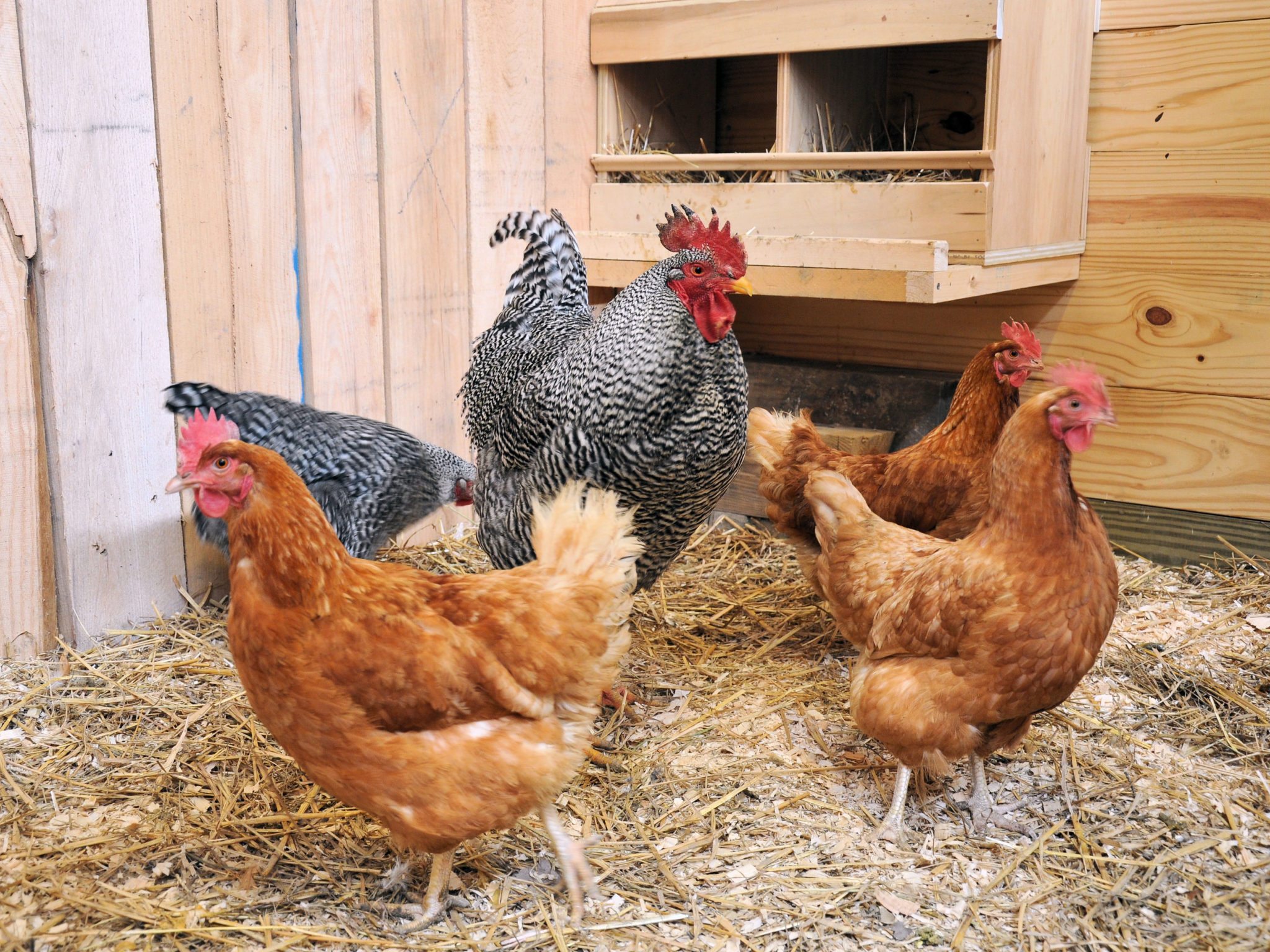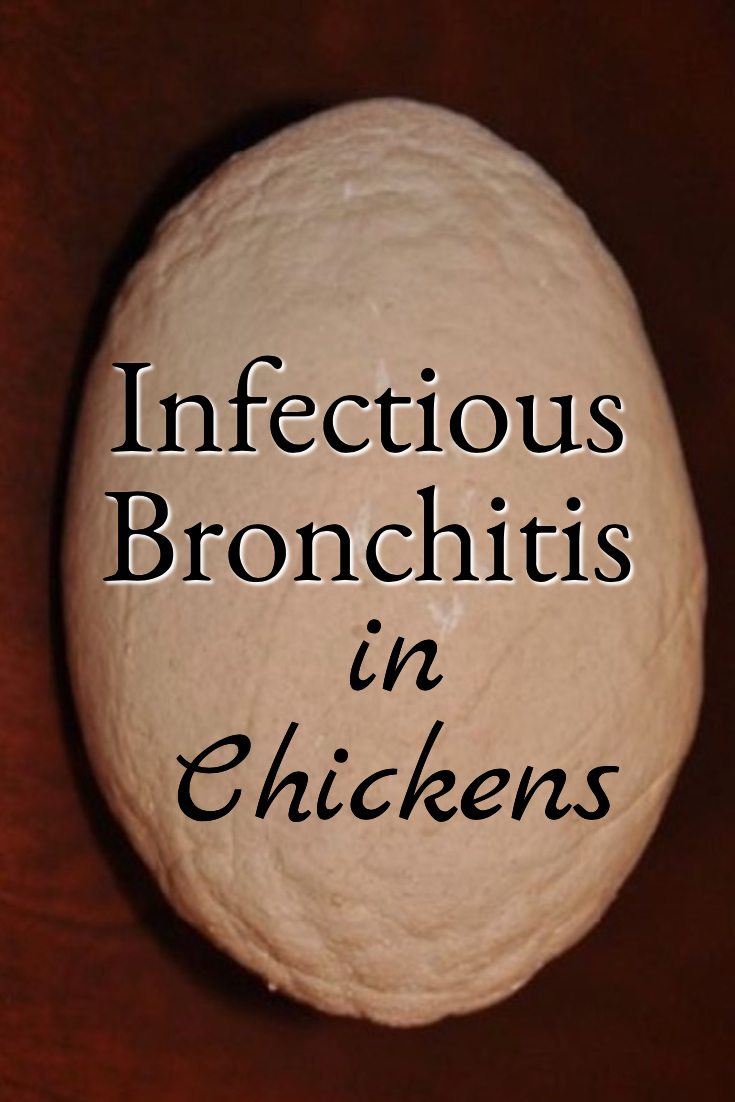Infectious bronchitis in chickens is one reason that it’s important to practice biosecurity and quarantine new birds before introducing them into your flock. When we introduced new chickens into our first small flock, I missed that important step, and we learned a painful lesson as a result.
It wasn’t enough to ask if the new chickens were vaccinated. We should have kept them separate from our flock for 30 days to make sure they couldn’t introduce disease.
As it turns out, the new Barred Rock chickens brought Infectious Bronchitis into our flock (it does not affect humans). And it destroyed the Golden Buffs’ ability to produce eggs.
What Is Infectious Bronchitis (IB)?
Infectious bronchitis is a coronavirus, it’s the most contagious poultry disease, and it spreads rapidly.
It’s transmitted by contact with infected birds, contact with contaminated equipment, and can travel over 1000 yards through the air.
The disease will infect a flock within 48 hours, and those birds that survive usually recover within 2 to 3 weeks.

Barred Rock and Golden Buff Chickens
Symptoms of Infectious Bronchitis in Chickens
Gasping, coughing and sneezing are symptoms displayed by birds with infectious bronchitis. There is typically a significant drop in egg production, and those eggs that are laid may have soft, ridged, wrinkled, or non-existent shells.
We were in denial about the chickens having infectious bronchitis for a while, thinking it was winter, they were molting, etc. However, when one of the Golden Buffs produced a “wrinkled” egg (see picture below – it’s a classic symptom of IB), we finally accepted that the new chickens brought disease to the flock.

Wrinkled Egg – IB Symptom
Long Term Symptoms
Infectious bronchitis damages the reproductive organs of mature chickens, so although they may return to production six to eight weeks after contracting the disease, they may never produce well again.
In the case of the Golden Buffs, they were about two years old and producing well. After getting IB, they were seldom able to produce an egg with a shell, and one hen had difficulty with a prolapsed vent (see Curing A Prolapsed Chicken Vent).
For an excellent, more in-depth discussion on this disease, see the article HERE.

Our First Small Flock
Preventing Infectious Bronchitis in Chickens
Survivors of infectious bronchitis are IB carriers, so the only way to eliminate it is to get rid of the flock, clean the pen or coop, disinfect everything, and start over.
We started with vaccinated Golden Buff pullets (and I think starting with quality stock is important), but it didn’t protect them from contracting IB.
So, the only sure way to protect your birds is to practice biosecurity. Keep as “closed” a flock as possible and be sure to adequately quarantine any new birds before introducing them to your flock.

Carol L says
You say to quarantine new birds, but also that the virus can travel OVER 1000 yards in the air…so HOW exactly are we supposed to keep them separate enough to not infect ?
Completely shut them up?
What about new hatched birds…can they have it pre-hatching?
Are NEWLY hatched birds ok? (like from a farm store or via mail order?)
How long has this virus been present in birds?
Thank you for the article.
Julie says
I used to keep chickens, but these days I just buy eggs from my neighbor across the street. We have gotten several eggs from her that are mishapen in this way. Today, my husband started to cook some eggs. He cracked them into the pan, noticing that they had thin shells. Although the yolks looked normal, the whites were extremely watery. He dumped them and tried again, the next eggs seemed normal enough. I know that AIB is not supposed to be communicable to humans, but should we stop buying these eggs? Should we throw out eggs that are watery like this? What do you think? Thanks for your input.
Lesa says
Hi Julie, that certainly sounds like IB, watery whites are a characteristic. IB is not communicable to humans, so I don’t know of any health risk (and nothing bad happened to us when we ate those eggs before starting over with new chickens). However, I like to go for the highest quality eggs I can find, so you might want to look elsewhere.
Alex says
How did you manage? Did you cull your flock and start fresh? I’m certain I have IB in my flock sadly. One hen showing symptoms rasping chirp and wrinkled eggs in past. Thin but that aside clear eyed and eating as normal. We only keep 7 hens 3 we’re rescued ex battery. Seems against our principles to cull if they can survive and live on but naturally I want to keep a healthy flock and would like other birds but risk them getting infected.
Lesa says
Hi ALex, Sadly we did end up culling the flock and starting over.
Sonja Bjäde says
Thank you Lesa for this article. We had a hen before who did such wrinkled eggs, but she’s dead now. But we have still another hen who coughes and sneezes. Maybe she has IB too. I’ve never heard about this before.